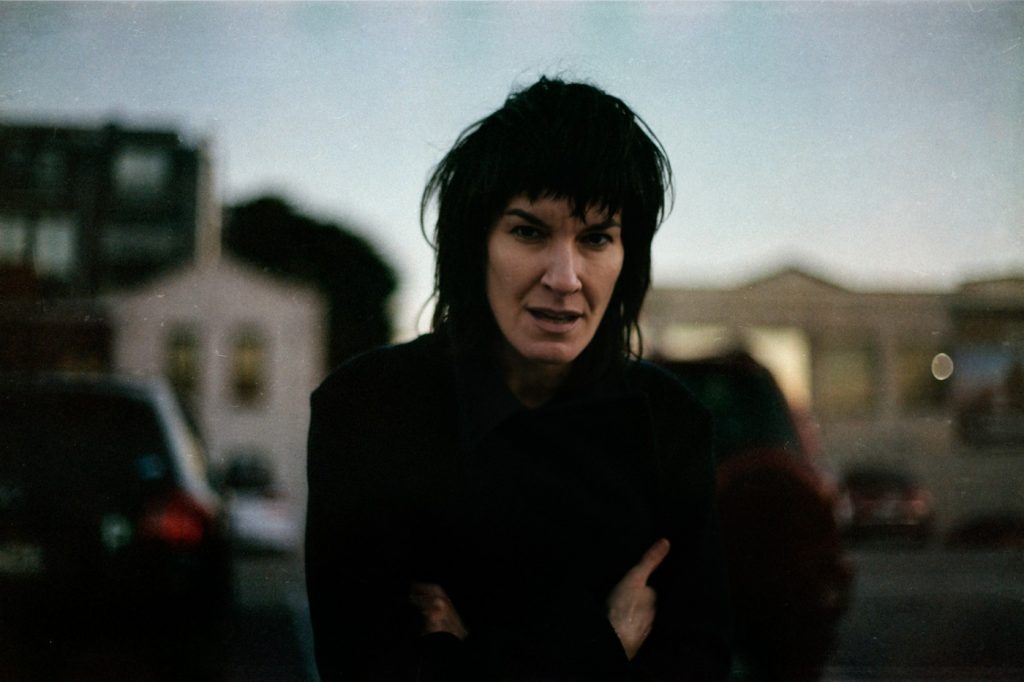
Photo: Tajette O’Halloran
‘Shoegazers’ – the fifth song on Jen Cloher’s self-titled album – contains the lyric: “Most critics are pussies who want to look cool / those who can do, they do / those who can’t, review”.
This is typical of the sort of shrewd and cutting lyricism for which the Melbourne musician has become renowned. The lyric acts as a clever precursory rebuttal to potential criticisms, putting any prospective reviewer in a compromising position. So, in attempting to review Cloher’s recent performance at the Deaf Institute, I feel one step behind, completely pre-empted, and effectively devoid of any ability to critique.
Luckily – that being said, I have no real criticism to give. Cloher’s biting, poetic and woke lyricism deserve a huge amount of acclamation. Putting aside her musical prowess for a moment, the intricacies and astounding honesty within her politically charged lyrics reveal a huge depth of emotional capacity. Explicit references to the Australian’s marriage with fellow compatriot and accomplished guitarist Courtney Barnett put forward a fierce advocacy for equal rights. The couple’s tie may not be legally binding due to the delayed reaction of Australian marriage legislation – but, Cloher’s raw social commentary within her first really political album sets down a precedence, making it completely clear that her personal life will not be constrained by any conservative agenda. Cloher is truly a driving force of progression in this respect, and deserves credit for the signs of change that lie on the outback’s horizon.
In an interview with the Guardian’s Kate Hennessy, an introspective Cloher alluded to times at which she has felt hyper-aware of lying in her younger spouse’s shadow. Barnett’s career has truly flourished since her highly acclaimed debut album Sometimes I Sit and Think, Sometimes I Just Sit, as well as the October release of Lotta Sea Lice – a praised collaborative album with Kurt Vile. It is indubitable that Barnett’s artful guitar playing buttresses Cloher’s new album. But Cloher is clearly not ashamed of this fact, as she uses her adept song-writing qualities to draw on this lucrative tool. The two musicians comprise a measured partnership, supporting each other in their respective careers by valiantly stepping out of the spotlight at calculated times to let the other flourish. Alongside Fraser A. Gorman, they are the brains behind Australian label Milk! Records, a platform from which they self-release their own material, as well as smaller Australian acts. This effectively allows them full creative licence over their outflow, a set-up that is rare in an increasingly numbers-driven and neoliberal music industry.
The music is secondary in Cloher’s album. The style is sharp and well produced, but it does not attempt to push the boundaries of the indie game. There is a certain post-punk wisdom to Cloher – she has clearly tapped into the frustration and angst of punk movements, earning her numerous comparisons to punk demi-goddess Patti Smith. Yet, it is as if Cloher has entered this placid stage beyond – a stage in which she has managed her expectations, mitigated any self-loathing, and come to terms with the barriers and limitations she faces. This is not to say that Cloher is succumbing to these barriers; she is just aware of the parts of her life that require energy. I guess you could call this stage a sort of post-punk indie Zen. Yet, I am hesitant to coin it anything, and the Cloher lyric I opened with comes to mind: by even hinting at the phrase ‘post-punk indie zen’, I definitely fall into the category of critic as “pussy who wants to look cool”.
Cloher’s Valentine’s Day performance at the Deaf Institute was part of a prodigious headline tour of America and Europe. The magnitude of this tour gives a sense that the artist is breaking the restrictions created by Australia’s small population, and reaching out to a wider audience. A clear confidence in the quality of material facilitated Cloher’s masterly, well versed, and clean performance – clean in the sense that there was little to shock. Coming straight off the back of a live session with Mark Riley at BBC Radio 6, there was a slight feeling that the band had entered autopilot. On one occasion Cloher, with a certain phlegmatic detachment, adorned the bassist’s instrument rather than her own, requiring Barnett to step in on the guitar as they moved classily through the album.
Filed under: Music

Comments